The various burning smell from car spell troubles, and there are several reasons for these unpleasant odors.
These odors should be addressed as soon as possible since they are also a health hazard.
Read on to learn how to distinguish the distinctly different types of burning smell in car, the culprit behind the problem, and how to fix it in each case.
Moreover, learn how to avoid the problem in the future with proper maintenance and good driving habits with Car From Japan!
Contents
Breaking Down The 5 Common Culprit of The Burning Smell From Car
Burning Rubber Smell
There are many types of burning smells, and each points to a different problem, but burning something is never a good sign.
Having your car smells like burning rubber after driving, particularly under your hood is a very common problem of burning smell from car. This is a sign that your car engine has been running for a long time.
There are a number of potential causes, so troubleshooting in turn to rule out the source of the problem and address it as soon as possible to avoid more expensive breakdowns in the near future.

Dragging drive belt
Together with the distinct burning rubber smell, you might also notice your car making abnormal sounds coming from under the hood, such as loud slapping, squealing or knocking noises.
This usually happens when one of the accessories connected to the drive belt or serpentine belt is locked, such as the generator, air pump, water pump, A/C compressor or A/C compressor clutch.
When this happens, the belt will rotate on a pulley that is frozen still, causing the belt to drag and this friction is the source of the burning rubber smell. This dragging drive belt phenomenon can also be caused by a misaligned pulley.
Solution: In this case, you simply need to replace the faulty belt and check the remaining belts. It is best to check your drive belt at least every 6 months.
Read More: How to Get Smoke Smell Out of Car?
Slipping clutch
If whenever you shift gears, you detect a burning smell from a car that smells like burning rubber or sometimes similar to a burning newspaper, the abnormal odor may come from a clutch problem.
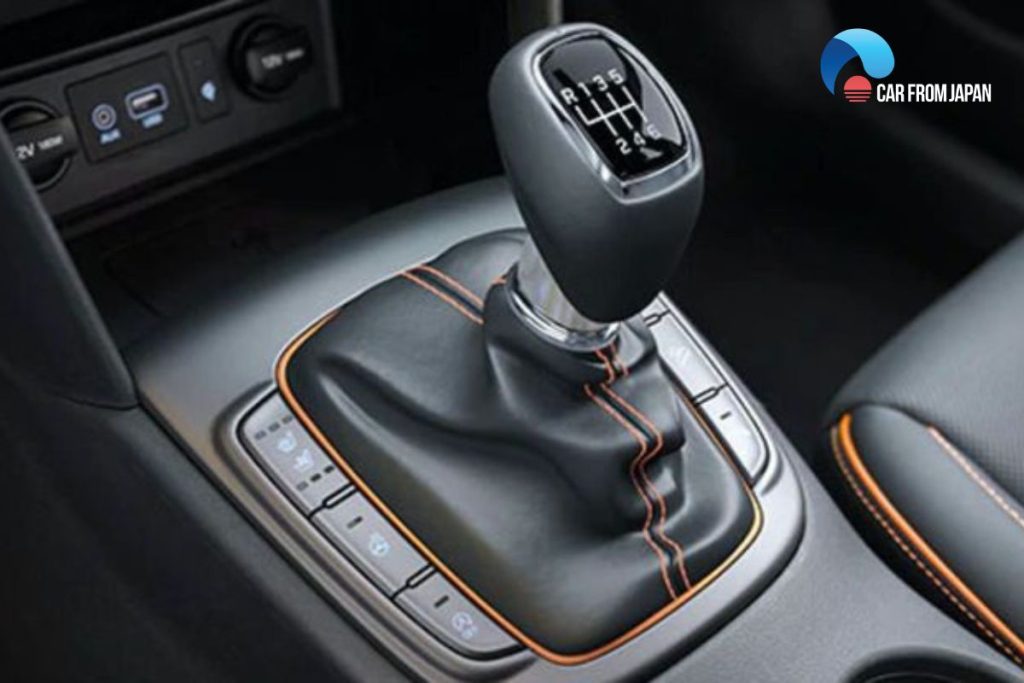
In any vehicle with a manual transmission, the clutch is the mechanical device that transfers the rotational power from the engine to the drivetrain, that is the wheels.
While the engine generates power all the time, the clutch allows the car to speed up, slow down or come to a complete stop without turning off the engine.
When shifting properly, the clutch pedal needs to be released quickly. The reason for the burning smell in most cases is the clutch is released too slowly, and the clutch disc will “slip” against the flywheel.
This amount of friction is similar to that on a brake pad when braking. The friction makes the clutch’s surface, which is made from a type of paper mesh, burn off. This creates a burning smell from the car that is similar to burning paper.
One reason for riding the clutch could be a poor driving position. If you sit too close to the pedals, you might not have enough legroom to put your left foot in a comfortable position elsewhere and might end up unintentionally resting it on the clutch pedal.
Solutions
Have the clutch inspected first thing to see if it is worn and needs to be replaced. To avoid this, it’s important to learn proper clutching and shifting techniques.
Also, adjust your driving position if needed to make sure you have enough leg room to comfortably move your foot away from the clutch pedal and rest it on the floor.
If you master clutch control, a well-treated clutch can last up to 80,000 miles. But if mistreated, you will have to replace many parts of the clutch/transmission system much sooner, sometimes as soon as you hit 35,000 miles. And that is not going to be cheap.
As a rule of thumb, don’t ride the clutch; doing this often leads to premature wear and tear, and thus premature replacement. “Riding the clutch” refers to the act of unnecessarily keeping the clutch pedal partially pressed down.
The basic principle of smooth clutch control is to fully disengage the clutch when changing gears by pressing the clutch pedal to the floor with your left foot, and then re-engage the clutch by lifting off the pedal to fully release it.
The rule of thumb is to release the clutch as close to the correct engine speed for the gear and vehicle speed as possible. That is when upshifting, you’ll need to allow the engine speed to fall before releasing the clutch to achieve a smoother transition.
Conversely, when downshifting, you’ll need to increase the engine speed with the accelerator before releasing the clutch.
Burning Plastic Smell From Cars
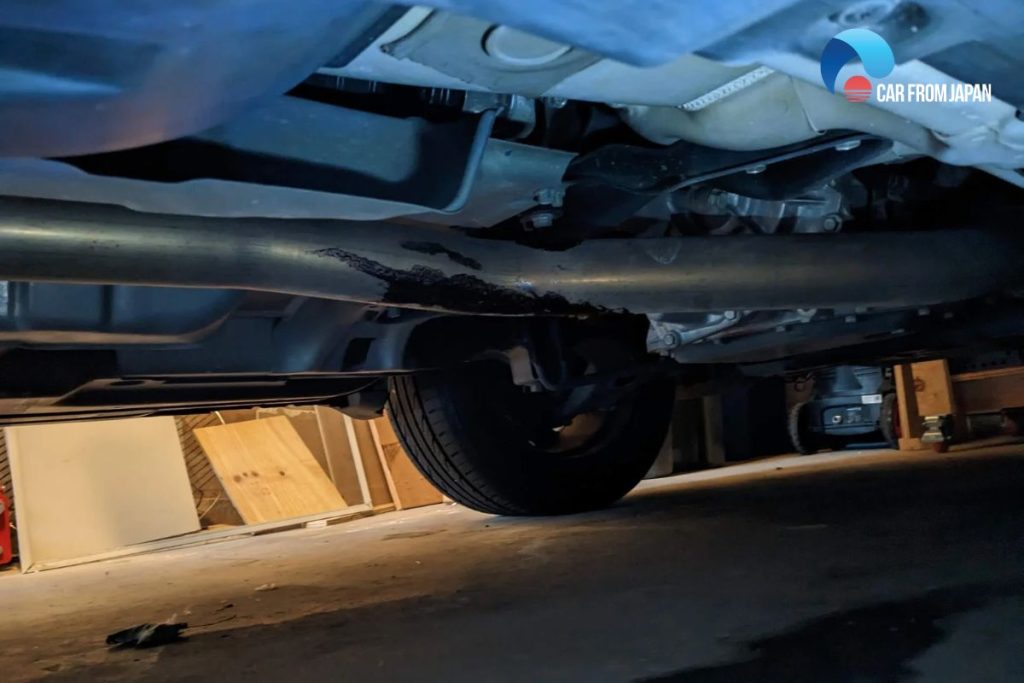
If your car smells like burning plastic, it usually occurs after starting the heater or fan in the car. This phenomenon is often related to certain parts such as fans, resistors, or some other high-temperature electronic components.
A clogged or worn heater
The first thing to check when you smell burning plastic is the heater. There could be dust accumulation in the system if you haven’t used the heater for long.
But if the burnt smell still presents even when you use the heater regularly, then some large particles or debris might be clogging the vent. Many car owners have found plastic bags and other objects stuck in the engine.
If upon inspection, this is ruled out, the heater itself might be broken and the antifreeze is leaking into the vents, causing the smell of burning plastic. Worse still, some parts of the heater could be broken or have melted. It usually happens with the heater’s motor.
Solution: If the smell gets stronger and you find no debris stuck to the vent, immediately take your car to the mechanic to get the heater checked along with other suspected parts.
Check the heater and the fuel lines for any leakages. Air filters cleaned or replaced if needed. You might use an antibacterial solution to clean the vents.
Electrical short
A major cause of the burning smell of a car is an electrical short circuit in the engine. The plastic coating on wires, fuses, or other connections may make your car smells like burning electrical.
Solution: You might need the help of a technician in this case. Your car will need to be connected to the computer system so that the source of the electrical problem can be identified.
Burning Coolant
Leaking coolant
If the burning smell from the car, particularly from your A/C, is somewhat sweet, avoid taking a big whiff, as it is most likely coolant that is leaking in your cooling system and it’s getting burned off.
Most AC units work together with the cooling system, and worn or damaged cooling components can leak coolant. A heater core may leak the coolant into the heating or air conditioning system of the vehicle.
The strangely sweet scent comes from ethylene glycol, a chemical substance added in antifreeze to lower the freezing temperature of the fluid. Ethylene glycol is harmful to human health, so have the problem addressed immediately.
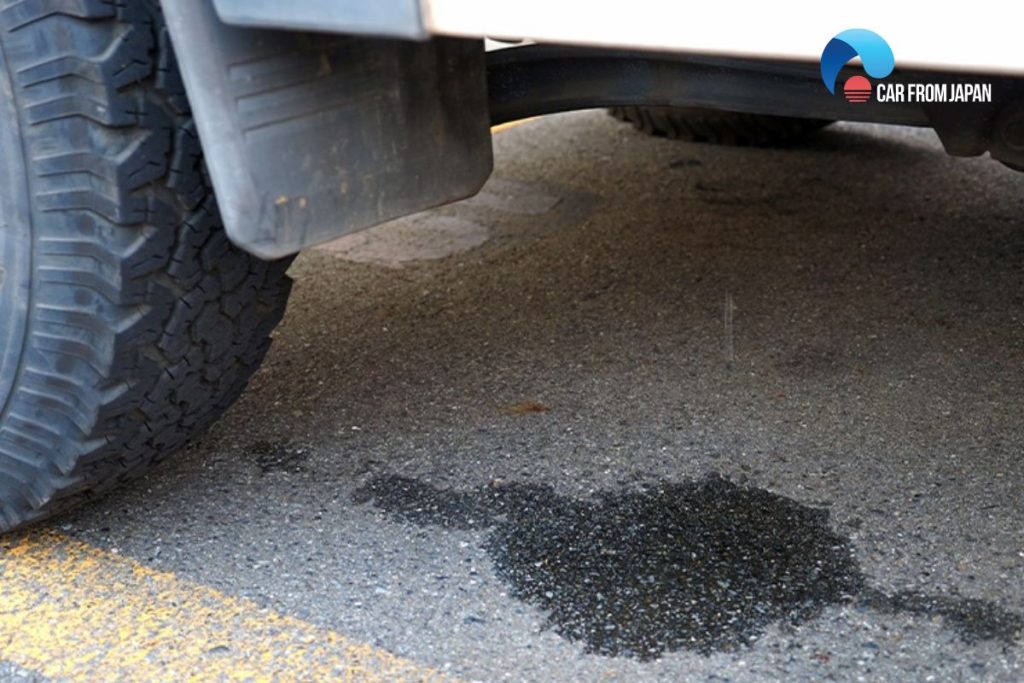
Solutions
There are many reasons for coolant getting burned off. Usually caused by a cracked or leaking head gasket, coolant can leak and mix in with oil and will be burned off inside the engine’s combustion chamber.
Another common reason is that a pinhole leak in a coolant hose can spray coolant onto a hot engine component, which boils the coolant away.
A leaking head gasket or coolant hose needs to be repaired or otherwise replaced if the damage is severe. The average cost is between $130 and $160, of which parts are priced at around $50.
Meanwhile, a cracked and leaking head gasket can be time-consuming and expensive to repair, which can set you back at least $1,000 for both parts and labor.
For a total replacement, labor would cost an average of $900 to north of $1,000, since it’s a time-consuming job, while the parts would typically cost between $700 and $850.
Burning Oil
Another common incidence of burning smell from car is car smells like burning oil. If you smell burning oil, stop the car and troubleshoot at the earliest chance.
All in all, the reason for a burning oil smell might be hard to pinpoint the problem with just your nose. You might want to leave the job to a pro, instead of having to remove a multitude of components for inspection.
Old engine oil
If you smell burning oil and at the same time notice blue-tinted smoke coming from the tailpipes, it’s probably due to old engine oil coupled with an overused oil filter that is burning excess oil in your engine.
Engine oil lubricates and keeps the vital components in your engine clean and free from corrosion, prevents overheating, and minimizes excess wear due to friction.
To prevent burning oil as well as to make sure your engine is running in tip-top shape, make sure to change your oil and oil filter periodically as recommended in your manual.
An oil and oil filter change will cost between $35 and $75 if you’re using conventional engine oil. If your vehicle requires synthetic oil, you would be paying more, typically from $65 to $125.
Leaking engine oil
In general, over time, oil can leak from your engine through cracked or worn head gaskets, hoses, and even the oil filter. They develop small cracks over time due to the normal heating and cooling cycles of your engine.
This leaky oil will get burned off upon reaching your hot engine or other heated elements under the hood, creating that burning oil smell.
When the oil enters the exhaust pipe that is hot, you may also notice white smoke emitting from the exhaust pipe. It’s a common phenomenon while driving uphill when you have to rev the engine more.
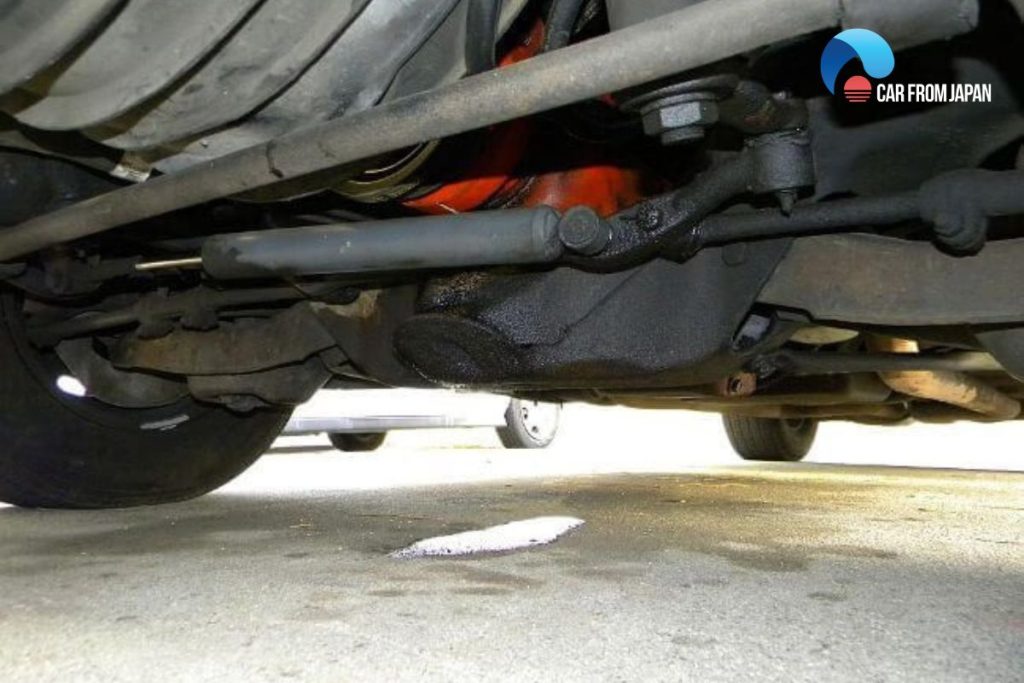
Solution
If you notice a burning oil smell and white exhaust smoke, it’s best to inspect yourself to pinpoint the source of the leak or take your vehicle to the nearest auto shop for troubleshooting.
If you continue to drive when the oil is leaking, your car will suffer more substantial damage and what would follow is more expensive repairs.
Repairing an engine oil leak is a labor-intensive job since it involves removing and replacing hard-to-reach components, which would require dismantling many other components to gain access.
Replacing a valve cover gasket is one of the least expensive repairs, as fewer components need to be removed.
Meanwhile, replacing a camshaft seal requires the removal of an array of components, including the timing belt and many engine accessories. A total head gasket replacement is the most expensive repair job.
Therefore, the cost of repairing an engine oil leak can range from as little as $150 to as much as close to $2,000, depending on the make and model of your vehicle, the engine and the leaky component.
Improper oil change
Oil changes when not properly done may result in excess oil dripping into the exhaust system or other parts. When the engine warms up the oil will burn to create a pungent smell in the car.
If the leakage is corrected, the oil will burn completely and the oil in the car will disappear after a period of time.
Loose oil filter or damaged oil plug
If you notice a burning oil smell that is accompanied by an oil puddle under the car, there are two likely culprits.
If operated under pressure or not properly installed, an oil filter might become loose over time, especially if you often drive in rough road conditions. A loose oil filter can lead to oil spills around the engine.
When the oil is burned, you will notice a burning oil smell. Another telltale sign is if you see an oil puddle under the car. In this case, inspect the oil filter to see if it needs to be replaced or tightened up properly.
Another possibility is a damaged oil plug. The oil pan has a plug in it, which if damaged might allow oil to leak into the exhaust system and create the smell of burning oil in the car. This will also create a puddle when the car stops or is parked at any point.
Burning Carpet Smell
If you smell something like a burning carpet, it usually happens if you ride the brakes hard. While going down a steep hill with the brakes slammed hard, the excessive on the brake pads might lead to a burning smell.
Another reason might be that the caliper piston could have seized, causing the brakes to drag.
Solution: Due to the importance of your braking system, regularly have it inspected to make sure each part is in good shape and working properly.
Avoid suddenly slamming on the brakes too often by keeping a sufficient distance from the vehicle in front of you and unless required, like when driving on the highway, avoid driving too fast. “Speed thrills but kills”.
And flush the old brake fluids periodically, especially if you have an older vehicle, to make your brakes last longer.
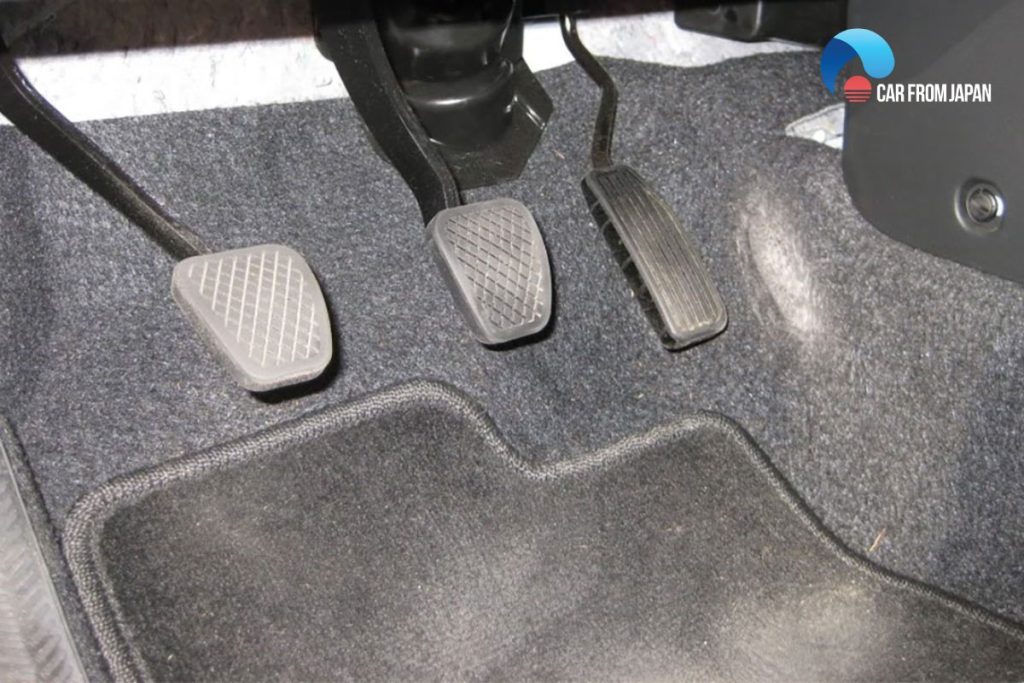
FAQs on Burning Smell From Car
Is a burning smell after driving downhill normal?
If you smell burning after driving downhill, it could be overheated brake pads due to excessive braking.
Using engine braking (downshifting) instead of relying solely on the brakes can reduce overheating and extend brake life.
Is a burning smell after an oil change normal?
A slight burning smell after an oil change may be due to residual oil dripping onto the engine. However, if the smell persists, it could indicate an oil leak or improperly sealed drain plug/filter.
Can a bad battery cause a burning smell?
Yes, an overcharging or failing battery can emit a burning plastic or sulfuric smell due to overheating internal components.
A damaged alternator or voltage regulator can also contribute to this issue.
What should I do if my car suddenly starts emitting a burning smell while driving?
If you detect a burning smell while driving, immediately check your temperature gauge and warning lights.
If the smell intensifies, pull over safely, turn off the engine, and inspect for smoke or leaks. Call for roadside assistance to avoid further damage or fire risks if necessary.
Final Words
If you detect a burning smell from car, don’t ignore it. Identifying the odor source is important to prevent further damage to your engine and to ensure your safety.
While some problems may be minor and easy to fix DIY, some more complex issues require prompt attention and inspection from professionals.
Pay close attention to smells as warning signs of a problem and take timely action, therefore you can protect your car, yourself, and other drivers on the road.

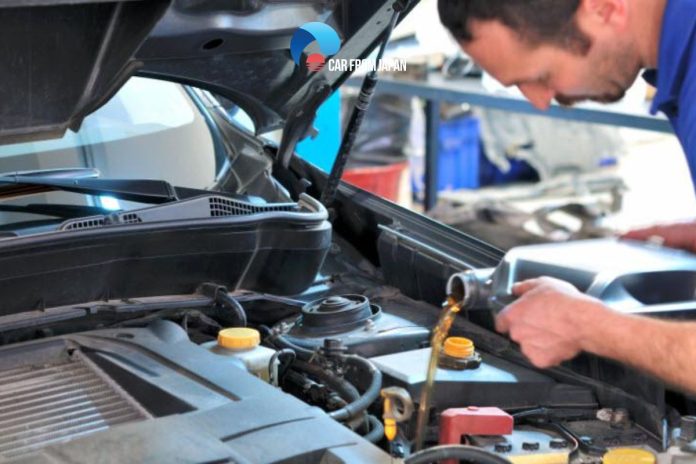


how about if a car is automatic but sometime gear is slow or take time to shift.?
Sometimes it’s due to old transmission oil, which may need changing immediately
This is good info, keep it up.
Thank you for your appreciation
A large percentage of of what you point out is astonishingly appropriate and that makes me ponder the reason why I hadn’t looked at this in this light before. This particular piece really did turn the light on for me as far as this particular subject goes. Nonetheless at this time there is one particular position I am not necessarily too comfortable with so while I attempt to reconcile that with the central theme of your position, allow me see just what the rest of the subscribers have to say.Very well done.
Please advise me about my vitz 1.0 model 2015
When acceleration is increased car ac vents emit burning smell at 110 km/hr
It always happens on hard acceleration
Same problem is with my Kwid 2016, it starts to emit burning smell from A/C Vent while hard acceleration.
Nissan Juke 64 reg 24000 miles on took back to dealer 5 times now (main dealer available cars .com)getting a sulphur smell on occasions whilst driving it my wife work mate daughter and son in law have all noticed it every time I take the car in it has test runs even the manager has took the car home twice and nobody has smelt the problem .they say they have done emissions and diagnostic test even changed the pollen filter I think the only other thing it could be is the cat but they never seem to want to change this could this be the problem as they tell me when I get the smell to bring it to them but sometimes I’m miles away then it goes even they are getting fed up with it but I guarantee the smell is there any advice would be fantastic
This advice is all well and good about “taking your car to a mechanic” but I’ve taken my car to 3 different mechanics yet not one of them could find out the reason why the fumes were getting inside the cabin of my car or even smell it! If mechanics are so incapable whats the point of taking your car to them in the first place!
Hi, I am having a burning metal smell. I only receive the smell sometimes in idle and when driving a lot. Many people have assumed it because the car is diesel. I have received no engine lights. Should I be worried about my family’s safety while driving? Do you have any idea what the problem could be? thanks
Same problem for me. A very strange smell coming from the heater. Even if the heater is off, still it smells.
Hello. I have been noticing a burning smell when my mom returns from doing errands and what not. I have noticed as has she that there is a rattle or other sound coming from her car when she’s driving. Wondering if it’s an exhaust issue. Her car is 10 years old. Not sure of the mileage.
Thank you
Can I ask a question ,are any of these cars you are all describing diesel cars .If so it could be caused by a heater plug (glow plug not working properly ,usually you will get this symptom when enitially first starting the vehicle .what is actually happening here is some of the diesel in the compression chamber with the faulty glow plug is not igniting at the exact time it should be there for in return you will experience a smell like a smokey diesel kind of smell , on the other hand it could be the glowplug heater relay that is at fault ,it may not be working properly and sending the wrong electrical current to the glow plugs .another problem could be a blocked dpf filter (diesel particulate filter) which causes bad smells in nm and around your car too.this usually happens if you only travel short distances ,the dpf filter doesn’t regenerate as you need to travel at least roughly 10 miles at speeds over 50 mph continuous to clear this soot build up in the dpf which is causing this .
What about a really weird burnt smell and now my shifter is stuck in park and smell is horrid???
Nice post